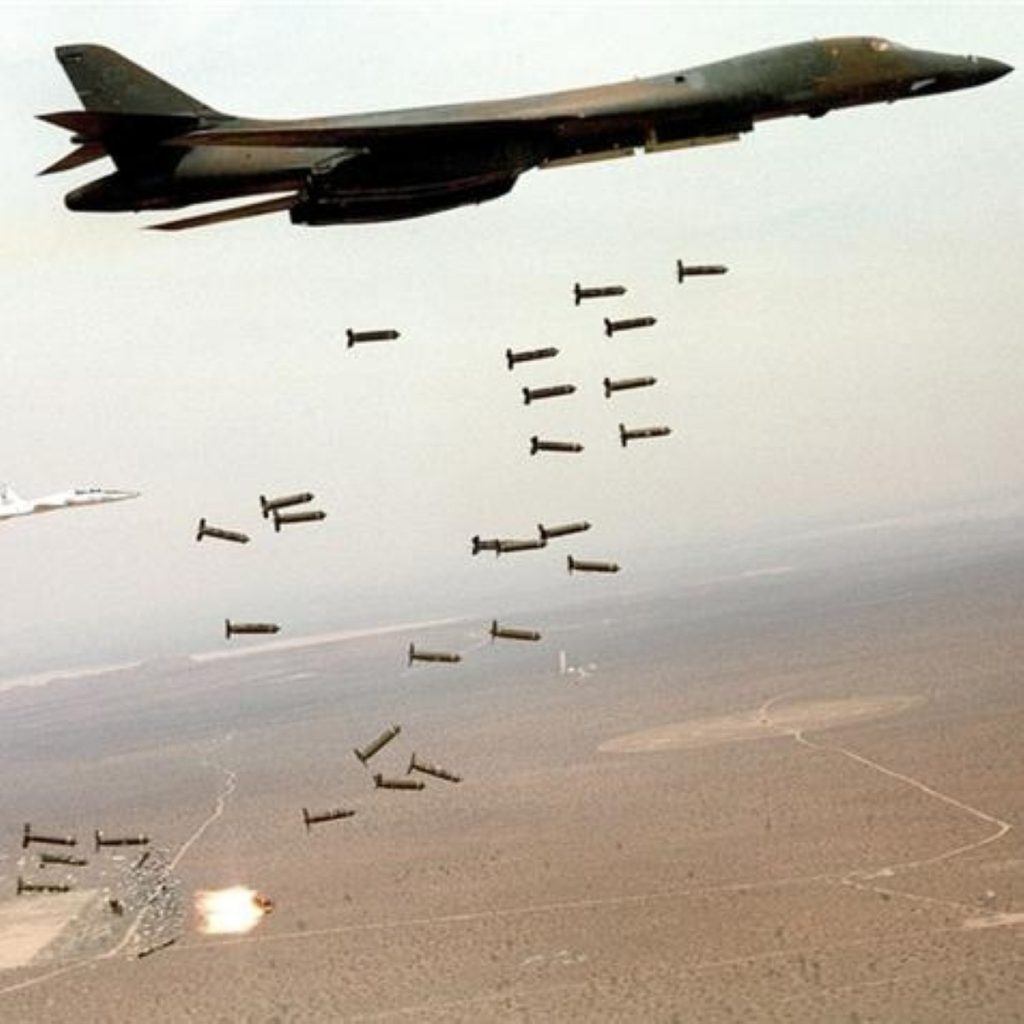Agreement sought on cluster bombs as UK dithers
An international agreement on cluster bombs is being sought at a major conference in Dublin today, despite concerns the UK government is holding up proceedings by not having a clear policy on the issue.
Representatives of over 100 governments are participating in the conference, which will seek to establish a new framework for the use of the weapons around the world.
Cluster bombs distribute small bomblets over a large area and are criticised by humanitarian campaigners because many of the bomblets fail to explode.
Children often mistake the unexploded bomblets for toys and thousands have sustained horrific injuries when they are picked up and detonate.


Previous conferences in Oslo, Lima, Vienna and Wellington in the last 20 months have been leading up to the current summit, which Irish foreign affairs minister Micheal Martin says will be the “critical stage” of negotiations.
“It is my sincere hope that the outcome will be a convention prohibiting the use, production, transfer and stockpiling of cluster munitions that cause unacceptable harm to civilians,” he said.
“It is also especially important that the convention establish a framework for cooperation and assistance that ensures adequate provision of care and rehabilitation to survivors and their communities.”
Clearance of contaminated areas, risk education and destruction of stockpiles of prohibited cluster munitions would also be included.
“We are confident that governments will make the right decision and adopt a ban with no exceptions, no loopholes and no delays,” Cluster Munition Coalition coordinator Thomas Nash said.
“This is what is needed to do justice to the victims of this weapon and to stop the maiming and killing of generations to come.”
According to reports the UK government is divided on whether or not it should accept the full ban being pushed for by campaigners.
The Ministry of Defence said the UK’s “ultimate goal” was a new instrument addressing the “humanitarian impact of those cluster munitions that cause unacceptable harm to civilians”.
“We will continue to work with the international community to ensure that the humanitarian objectives we and many others share are fulfilled,” a spokesperson added.












